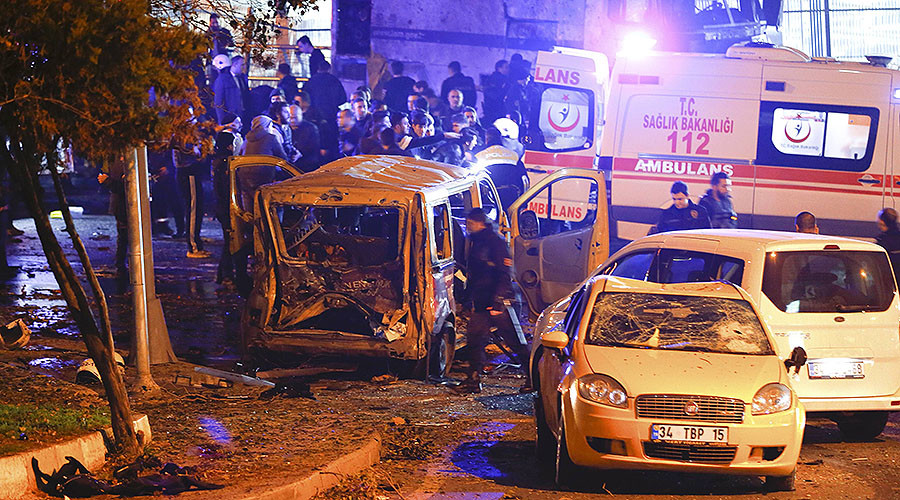Two separate bombings in Istanbul resulted in over thirty casualties at 11 p.m. local time this Saturday.
The first blast originated from a remote-controlled car bomb near the Besiktas Vodafone Arena. Minutes later, a second blast was caused by a suicide bomber at Macka Park, just a few yards away from the first explosion. No group has claimed responsibility for the attacks, although thirteen suspects have been detained by police for suspicion regarding the events.

Another event in a series of terrorist acts against Erdogan’s Turkey
Turkish Interior Minister Süleyman Soylu delivered the news at a press conference on Sunday, revealing that the existing evidence suggests that the attack was carried out by the Kurdistan Workers Party (PKK), which just like ISIS, has carried out attacks in Turkey over the course of the past few years.
President Tayyip Erdogan also issued a statement condemning the attacks and asked the Turkish people to hold strong to their beliefs to “overcome terror, terror organizations, terrorists and the powers behind them.” He canceled a planned visit to Kazakhstan, and state politicians called for the solidarity of allied nations to fight terrorism. The U.S. remains as Turkey’s key international ally in the fight against ISIS. Recently, the terrorist organization announced their intentions of attacking Turkish security forces.

The explosions occurred just after the Besiktas played against Bursaspor in a game of the Turkey League. The Besiktas Vodafone Arena has a capacity of 40,000 people. 30 of the victims were police officers and many of the wounded are undergoing emergency surgery at this time. There is footage of the explosions, showing people and police surrounding the area while paramedics carried people to nearby ambulances. Cars in the vicinity were towed as a safety measure.
In June, ISIS carried out a shooting at Istanbul’s Ataturk Airport, killing 44 people. One month later, a failed military coup revealed the instability of Erdogan’s rule, although he managed to pull through the events resulting in the arrest of hundreds of people accused to be coup collaborators. In August, ISIS caused an explosion at a wedding in Gaziantep, a Kurdish district near the Syrian border, killing 54 people.
In the last few months, thousands of Kurdish leaders have been detained, many of them members of the People’s Democratic Party, which is one of Erdogan’s main entities of opposition. Recently, the HDP has been accused of being linked to the extremist PKK, a thesis that served to fuel the purge of state institutions that occurred after the coup attempt.
“Sooner or later, we will have our vengeance. This blood will not be left on the ground, no matter what the price, what the cost. To those trying to defend the perpetrators from podiums, over the media or internet, and trying to make up excuses. There is no excuse for this … Know this: the blade of the state stretches far and wide,” stated Turkish Interior Minister Süleyman Soylu at the funeral of the police officers.
Source: CNN
